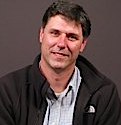|
|
||
|
JOURNEY INTO DYSLEXIA presents profiles of dyslexic students and adults who share their experiences of struggling in school and then succeeding in life. Academy-Award winning filmmakers Alan and Susan Raymond examine the complexities of this differently structured brain and debunk the myths and misperceptions about dyslexia. Dyslexia is a specific leaning disability that is neurobiological in origin and typically manifests through difficulty in reading, writing, spelling and math. It has nothing to do with intelligence, birth defects, or a mental illness of any kind, the home environment, level of education or economic status. Dyslexia persists throughout one's lifetime and is prevalent in every culture in the world. In the U.S. it affects as much as 10% of the population. Surprisingly, however, Journey into Dyslexia reveals that many adult professionals who once struggled to learn in school consider their dyslexia a unique gift and the defining reason behind their success.
Because of its hidden characteristics, dyslexia is often misunderstood and misidentified. To qualify for accommodations in school or the workplace, a person must be identified through psychological testing. MRI scans reveal that learning areas activated in the brain of a dyslexic are different from those of “typical” readers. Dr. Guinevere Eden, Director of the Center for the Study of Learning at Georgetown University Medical Center, notes, “Brain imaging technology has helped us to understand that even though this is an invisible condition, it’s now become visible because we can see it in the brain.” Alan and Susan Raymond visited schools throughout the U.S. that have programs specifically designed for different ways of learning. These schools focus on programs where students are effectively taught to read and learn compensatory skills to manage their deficits. They talk with students from elementary age to college, teachers, researchers and successful adults about the way dyslexia informs who they are, how they learn and the ways in which they develop a different set of skills with which to navigate a world where standardization is the norm. Journey into Dyslexia features professional adults who share their school experiences of struggling to meet academic norms and developing skills to compensate for being labeled learning underperformers. Included in the film are consumer advocate Erin Brockovich; Ben Foss, inventor of the Intel Reader, New England Wood Pellet Founder and CEO, Steve Walker; celebrated micro sculptor Willard Wigan; and Dr. Carol Greider, 2009 Nobel Laureate in Physiology and Medicine. Now pursuing successful careers, they describe dyslexia as “a gift” and “a wonderful form of intelligence” that has facilitated their success. A recent study sponsored by The Kauffman Foundation revealed that as many as 35% of entrepreneurs are dyslexic. Dr. Carl Schramm, CEO of The Kauffman Foundation, puts these unique differences into perspective, “Are these people more visionary, can they see things differently? They come to the realization that society pronounces the number of skill sets that are necessary for success that they don’t seem to have. And they go out and build the environment in which they will succeed.” Still, Journey into Dyslexia shows that the majority of dyslexic U.S. students are not getting the help they need. The most poignant interviews come from children and adolescents with dyslexia who reveal not only their frustrations at being misunderstood but also the emotional toll the stress can take on young students. Dr. Maryann Wolf, author of Proust and the Squid, adds, "Some of our children with dyslexia are among our most intellectually gifted humans. It’s a form of intelligence. It’s a form of brain organization that they have that leads them to be, oftentimes, our artists, our architects, our pattern recognizers in radiology and astronomy. But they think often outside the box of our conventional left hemisphere thinking. I love them. Our species would never be what it is without this form of brain organization.” To schedule a speaking engagement with Alan and Susan Raymond, please email them via the CONTACT page. 
|
||
 play button to watch the video
play button to watch the video